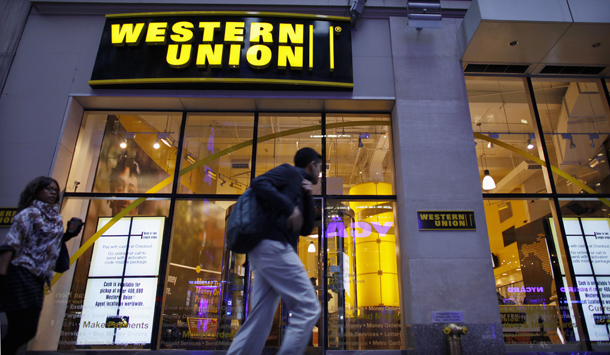US-based international transaction firm Western Union has signed an agreement with the Myanmar Oriental Bank (MOB) to handle money transfers into and out of Burma.
An MoU was signed on Sept. 11 at the MOB’s head office in Rangoon with transaction operations apparently scheduled to begin as early as the end of September.
“We are proud to provide a reliable financial link between overseas Myanmarese [Burmese] and their families back home,” said Drina Yue, the managing director and senior vice-president of Western Union Asia Pacific. “Our aim is to expand our network expeditiously and provide 100 percent coverage of countries popular with millions of Myanmarese abroad.”
The contract marks yet another step in the political and economic reform of Burma since a nominally government took power in March replacing decades of military rule that regulated the country’s status to that of a pariah state, crippled by international sanctions.
Western Union now boasts international operations with every nation with the exception of North Korea, Iran and Cuba.
“We will implement this service as quickly as possible,” said a spokesperson for the MOB group. “Maybe by the third week of this month.”
MOB has only 19 branches throughout Burma but said it plans to open two new offices in the near future.
“We are planning to set up service centers in certain places where we do not have branches,” said Than Win, the senior general manager of MOB. “We have already received training from Western Union Vietnam, so our staff know how to operate this new service. To begin with, the Central Bank [of Myanmar] will only allow money transfers for Burmese exiles to send funds home to their families. But we will also be operating an outward service in the near future.”
Observers say that it may take time before overseas Burmese begin using the Western Union service as most are accustomed to transferring money through agents known locally as hundi who provide a cheaper service. These agents operate branches in countries where a large population of Burmese migrants are working, such as Thailand and Malaysia.
“Yes, I agree that the Western Union service is more expensive,” said Than Win. “But they said they will start offering more attractive rates for Burmese migrant workers. The benefit of the Western Union is that it is more reliable for the transfer of large amounts of money.”
MOB won the Western Union contract despite the interest of several larger and more influential banks in Burma, such as Kanbawza, the Asia Green Development Bank and the Myawady Bank.















